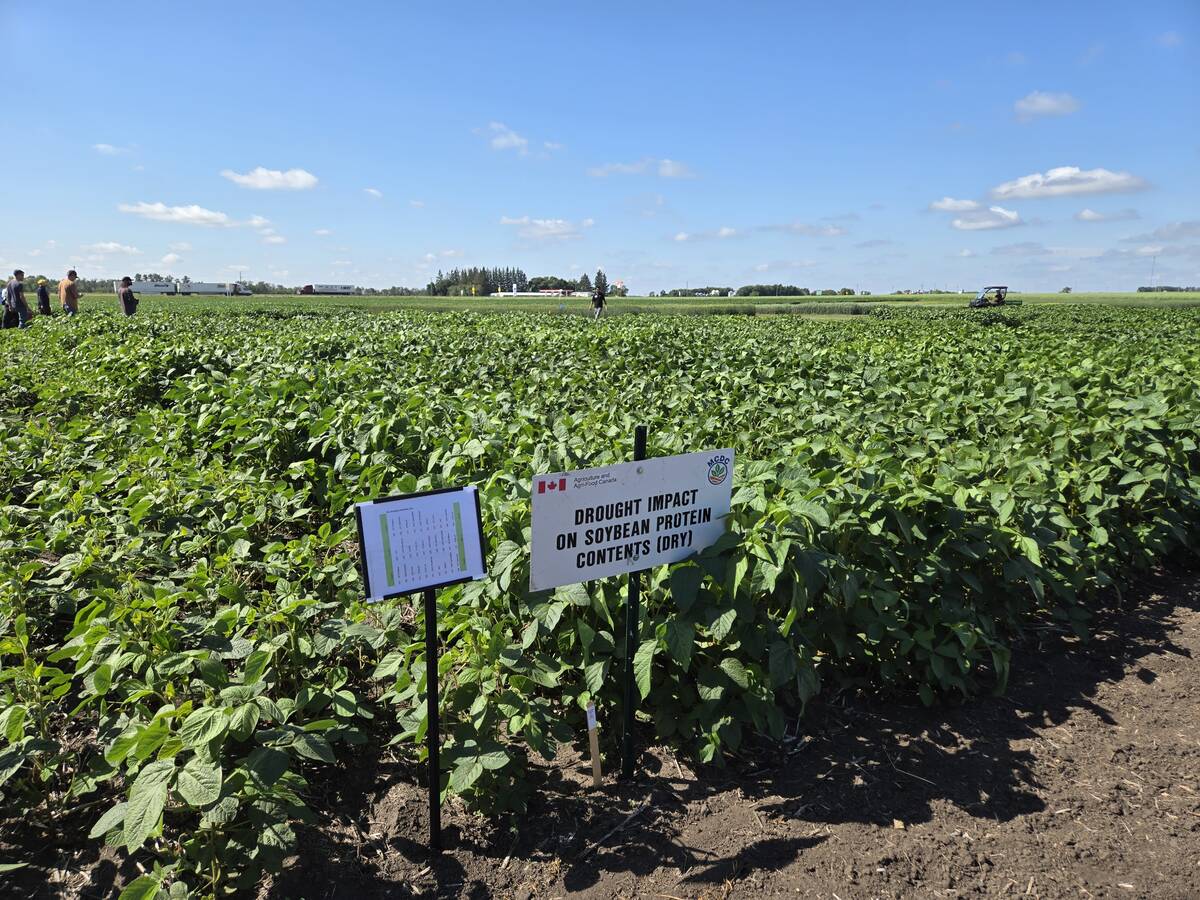The Canadian Food Inspection Agency confirmed July 4 a Manitoba cow is Canada’s sixth case of BSE.
George Luterbach, a senior veterinarian with the CFIA, said the detective work has begun on the origin of the 15-year-old crossbred beef cow from Gimli, Man.
“The cow was not born on that particular farm. It was part of a group of animals purchased from a dealer in 1992,” said Luterbach.
Investigators must sift through records and jog memories to find where the animal was born. Once they find its birth farm, they can begin to search for animals born within a year of that cow that may have been exposed to the same feed.
Read Also

Carberry field day looks for agriculture solutions
Manitoba farmers explored research solutions for resilient crops, perpetual agronomic issues and new kinds of agricultural products at a field day at the Manitoba Crop Diversification Centre in Carberry on Aug. 6.
“We’ve got a number of leads we are following but nothing conclusive at this time.”
Investigators are also looking for the animal’s offspring. A calf born in 2005 to the cow died on the farm from unrelated causes. The 2004 calf was sold, presumably for fattening, and investigators are in the process of tracing it, said Luterbach.
If the birth farm can be identified, the CFIA will begin a feed investigation. Eating contaminated feed is believed to be the most likely form of infection. The investigation will likely be slowed because of the age of the animal and limited records, the CFIA said.
While the cow is older than any of the previous cases of BSE, the federal government agency in charge of the investigation is not likely to change the BSE surveillance criteria, Luterbach said.
Specified risk material is removed from all slaughtered cattle so food safety isn’t an issue and the surveillance program doesn’t just target younger animals, he said.
“I think this program is pretty solid. All six animals found to date in Canada with BSE were all found with the surveillance program. That’s a strong endorsement we’re looking in the right area.”
United States Department of Agriculture chief veterinary officer John Clifford said the Americans are also confident in Canada’s BSE surveillance system and don’t expect the latest case to disrupt trade.
“We will review the information gathered through Canada’s epidemiological investigation but it is important to note that we have anticipated that there may be additional detections of BSE in Canada. These additional finds have already been factored into our current beef trading relationship with Canada and we do not expect that this latest case would cause any disruption to our trade in beef or beef products from Canada,” Clifford said in a July 5 News release
news.
Montana-based R-CALF is calling on the USDA to postpone any plans to reopen trade of Canadian cattle older than 30 months.
The group blames the comingling of
Canadian cattle with U.S. beef as one of the reasons for the delay in regaining markets in Japan and South Korea.
“We need to be able to differentiate high quality U.S. beef from Canadian beef to gain full resumption of U.S. exports,” said
R-CALF president Chuck Kiker.














